The Mark Book Report
The Mark Book Report is a comprehensive tool designed for training providers to monitor and assess students' performance across various assessments. This report aggregates data from multiple evaluation points, including diagnostic tests, practice questions, and topic tests. By compiling this information, the Mark Book Report offers a detailed overview of each learner's strengths and areas for improvement, facilitating targeted instructional support. Training providers can utilize this report to track individual and cohort progress, ensuring alignment with educational standards and compliance with regulatory requirements. The data presented in the Mark Book Report can be exported in Excel or PDF formats, enabling seamless integration with e-portfolio systems and simplifying administrative processes.
Interactive Walkthrough
Access our database of Supademo videos here:
https://app.supademo.com/showcase/cm9indmzl002pwt0i2fosboin
Step by Step Process
How to View and Export a Mark Book Report
1. Click on "Reports".
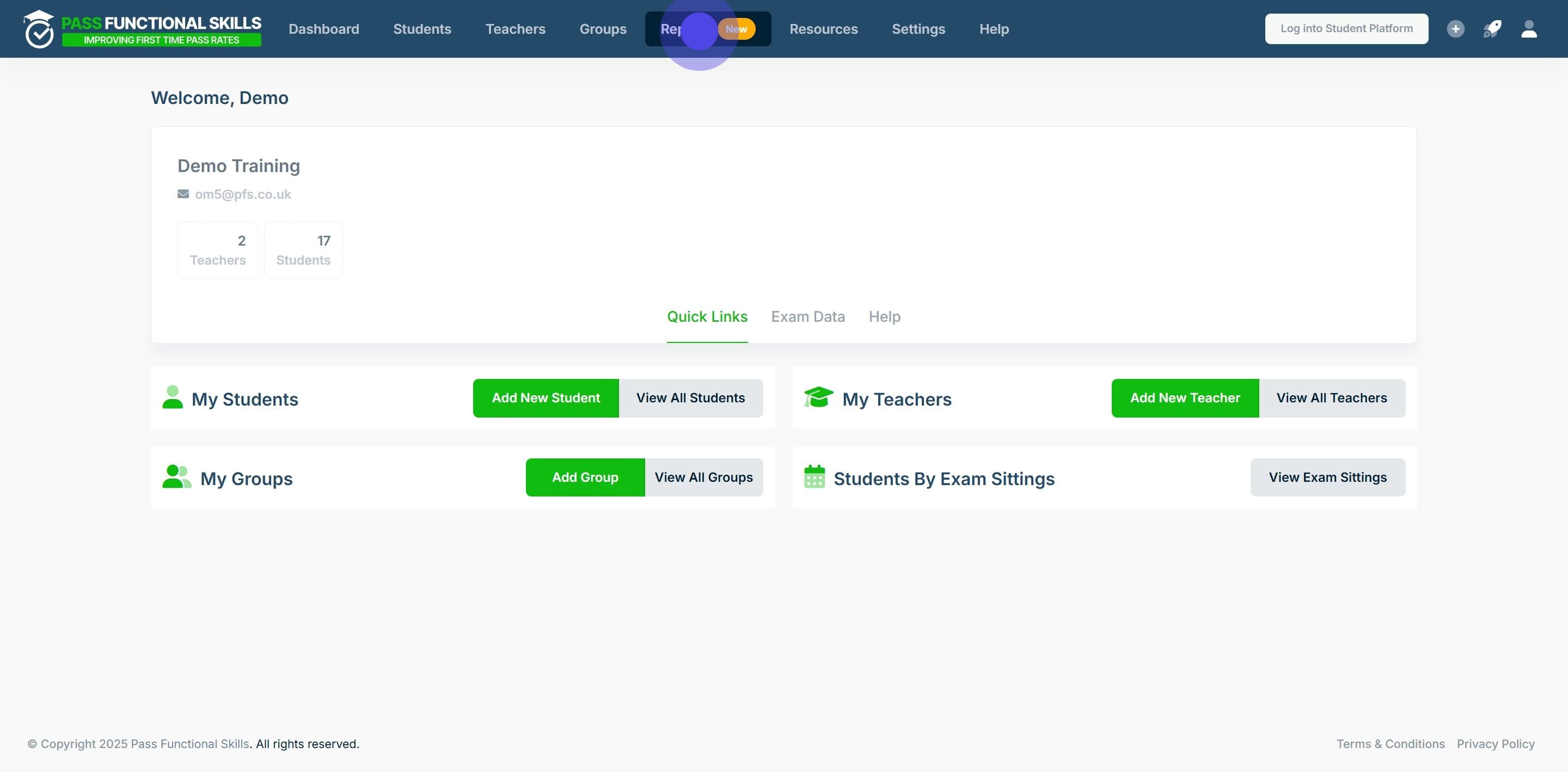
2. Click on "View Report".
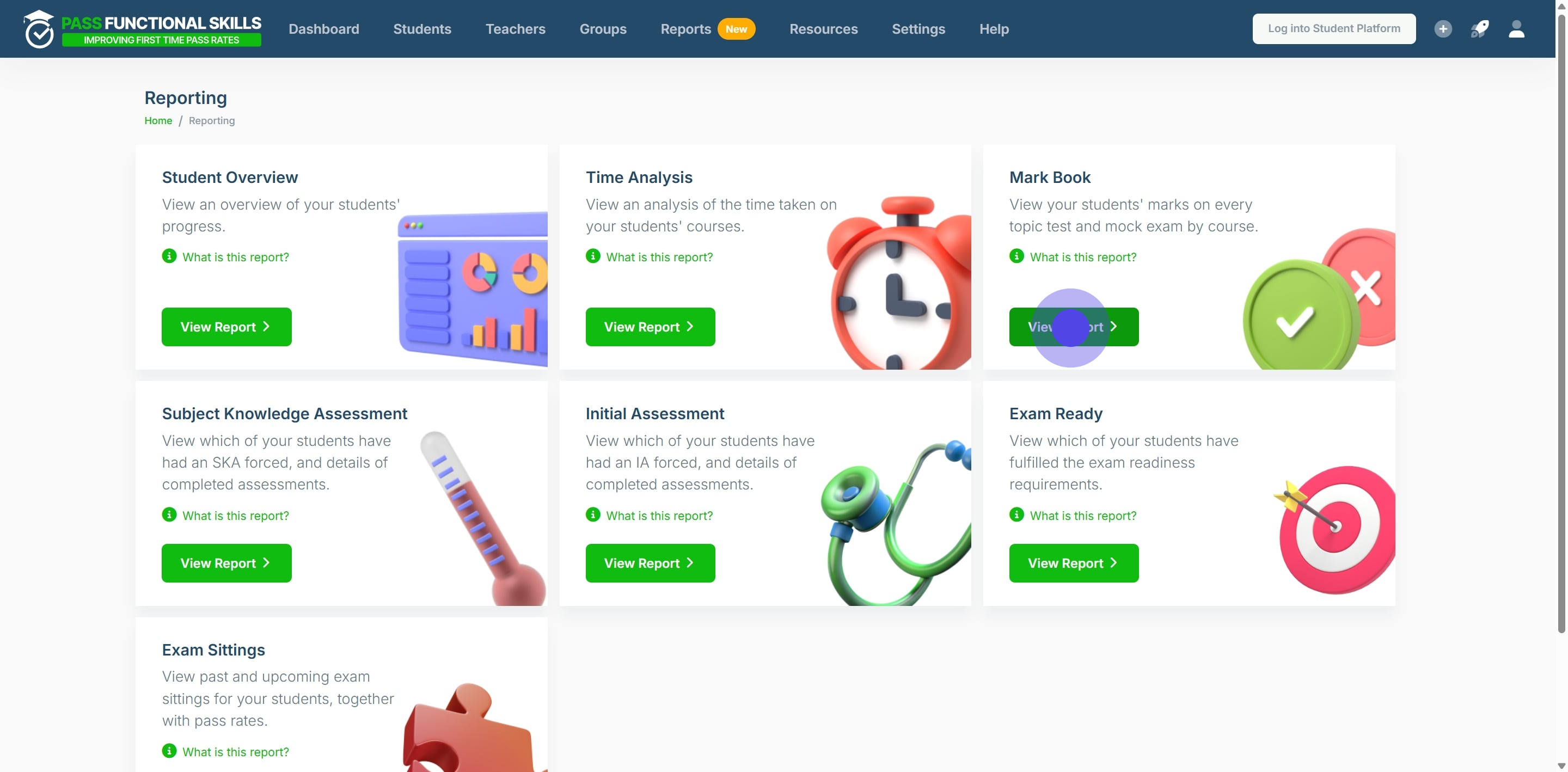
3. Click on the search bar to select a course for the report.
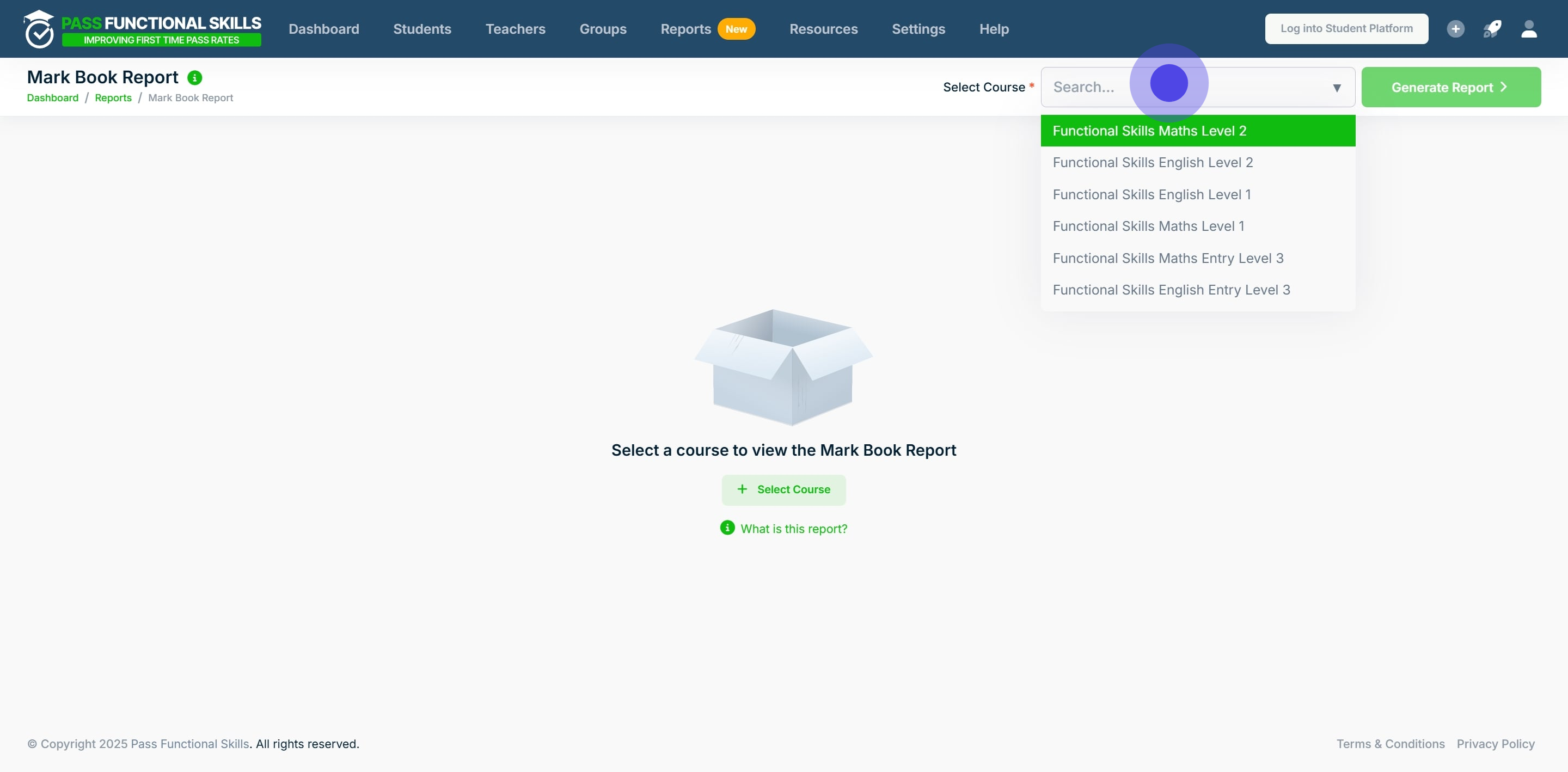
4. In this example we will choose the course "Functional Skills Maths Level 2".
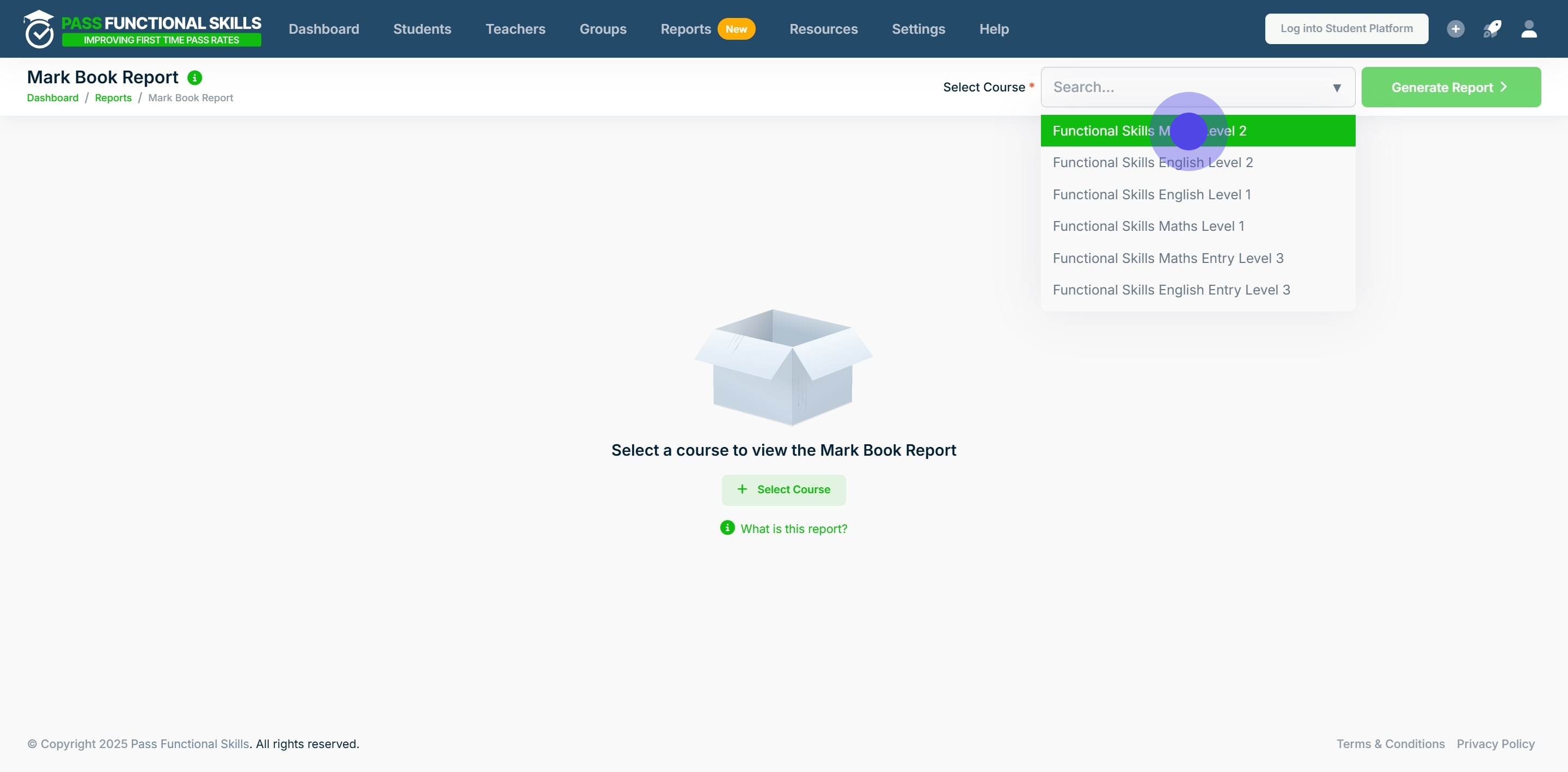
5. Once that's done, click on "Generate Report".
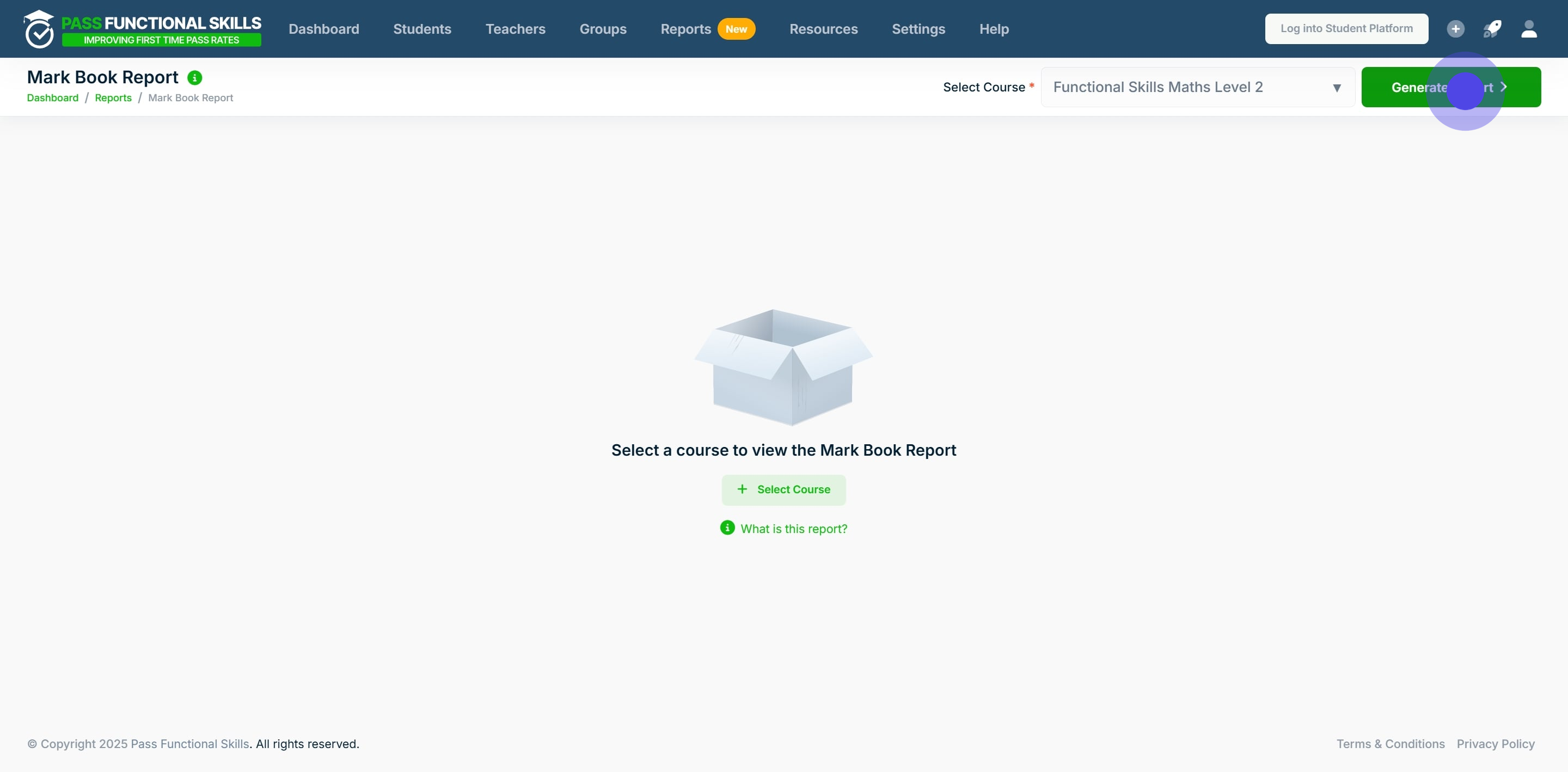
6. This will have generated the report. To export the report, **right click** anywhere in the table.
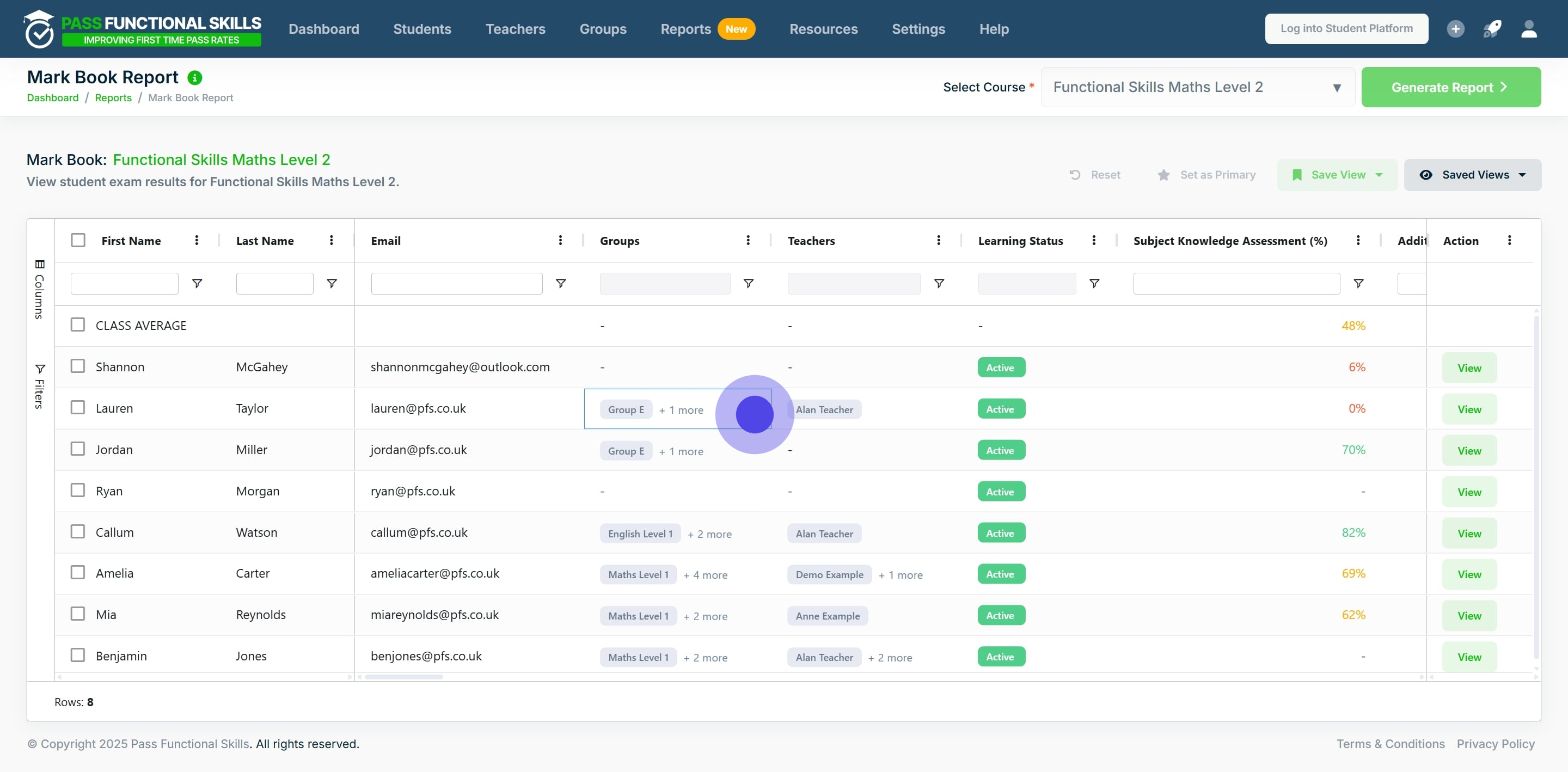
7. After, click on "Export".
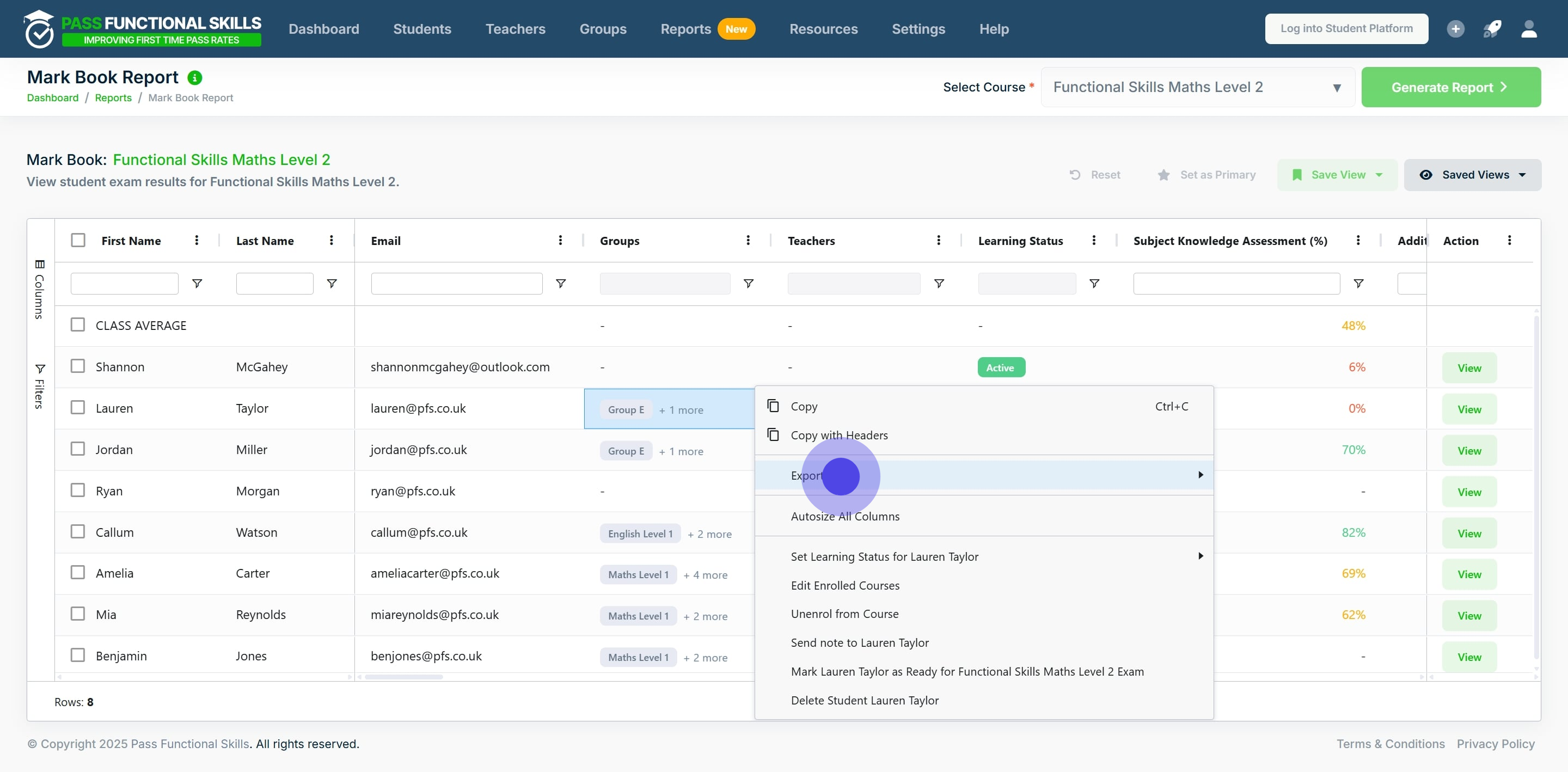
8. Finally, choose whether you would like to export the report as a CSV, or, directly into Excel, and click your choice.
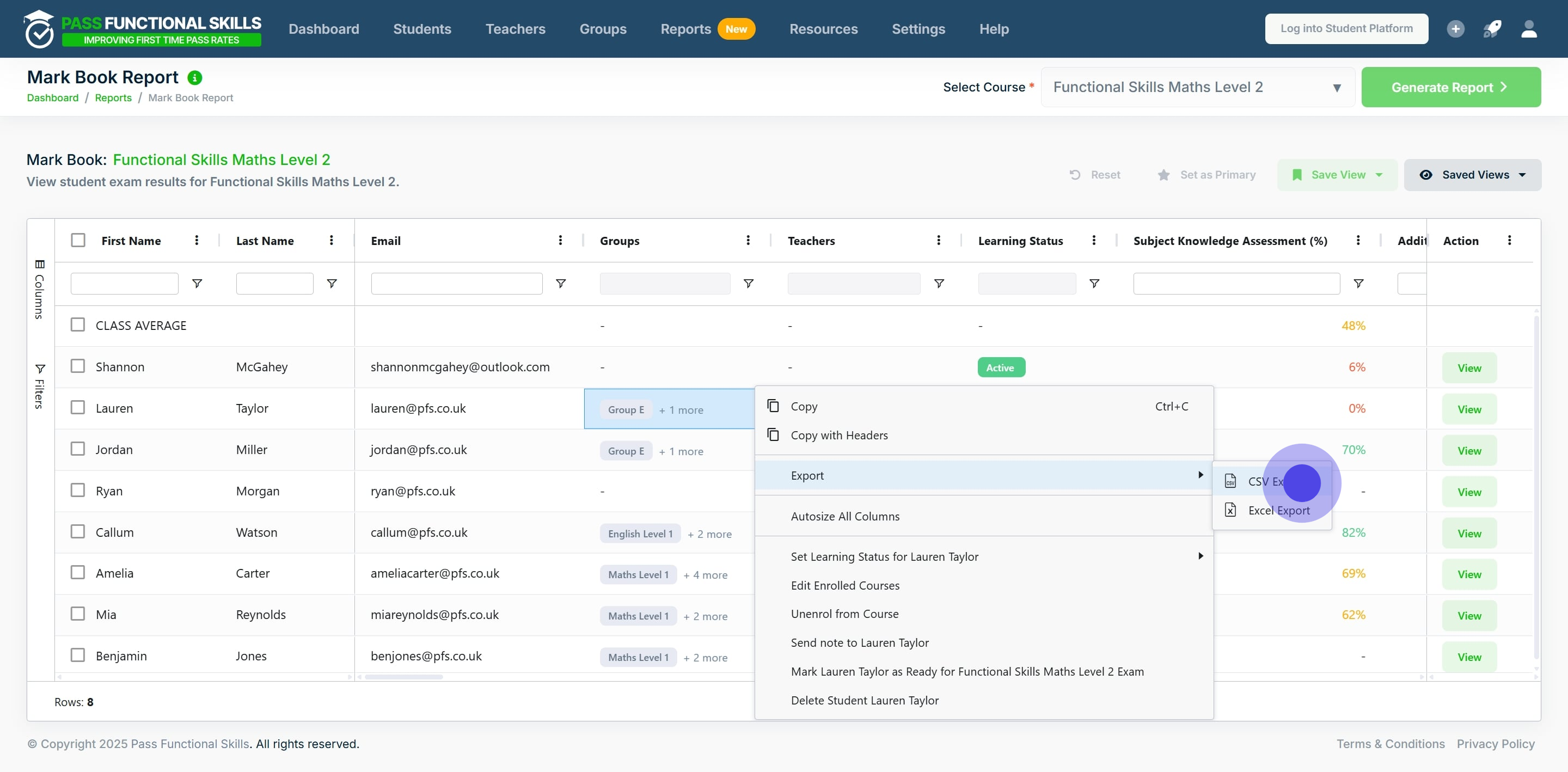
Standard Columns:
| Column Name | Contents | Extra Details |
| First Name | Student's First Name |
|
| Last Name | Student's Last Name |
|
| Groups | A list of groups to which the student belongs. | Clicking the cell on a single student will allow you to view all groups the student belongs to |
| Teachers (Organisation Managers only) | A list of teachers to whom the student is assigned. | Clicking the cell on a single student will allow you to view all the teachers the student is assigned |
| Learning status | Current learning status, which may be "Active," "On a Break," or "Archived." |
|
| {Exam/Topic Name} (%) | Each Subject Knowledge Assessment (SKA), Topic Test, and mock exam will have its own column. Each cell represents the percentage achieved by a given student on their most recent attempt of that exam. |
The number of columns may vary significantly from course to course, depending on the course’s length and the style of assessment employed. If the student has not attempted this exam, the cell will display a dash (”-”). |
| Class Average Row | This displays the average score achieved by students within the report for a specific exam. |
Students who have not attempted the exam are excluded from the average calculation. If no students have attempted this exam, the cell will display a dash (”-”). |
Context Menus:
You can access context menus by right-clicking on a row. To use multiselect, first select the desired rows using the checkboxes on the far left, then right-click to open the menu.
| Context Menu Name | Purpose | Can use multi select |
| Export -> CSV Export | Export the data in CSV format for analysis or other uses. | Yes |
| Export -> Excel Export | Export the data in Excel format for analysis or other uses. | Yes |
| Set Learning Status For {StudentName} | Update the learning status of the student. The available options are “Active,” “On a Break,” or “Archived.” | Yes |
| Edit Enrolled Courses | Edit the courses that the selected student is currently enrolled in. You can add or remove courses. | No |
| Unenrol from Course | Remove the student from the course for which you are currently viewing the report. | No |
| Send Note to {StudentName} | Send a note to the chosen student | Yes |
| Set {Student} as Ready for {Course} exam | Mark the student as ready for the exam in the current course you are viewing. If the student is already marked as ready, this action will unmark them. This feature is available only for premium courses. | No |
| Delete Student {StudentName} | Delete the student. This action will prevent the student from logging in and appearing anywhere on the provider platform, affecting all teachers associated with the student. | No |
